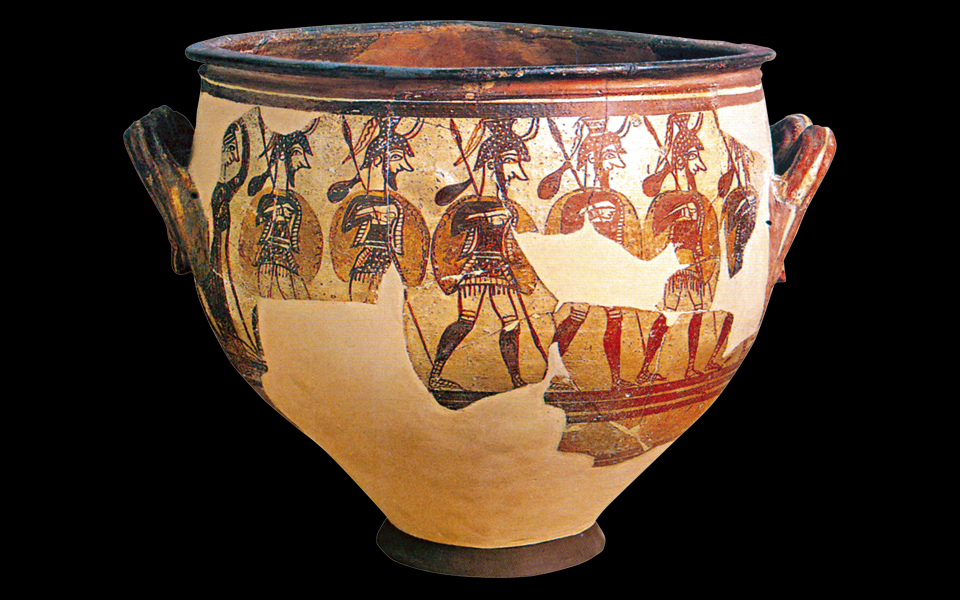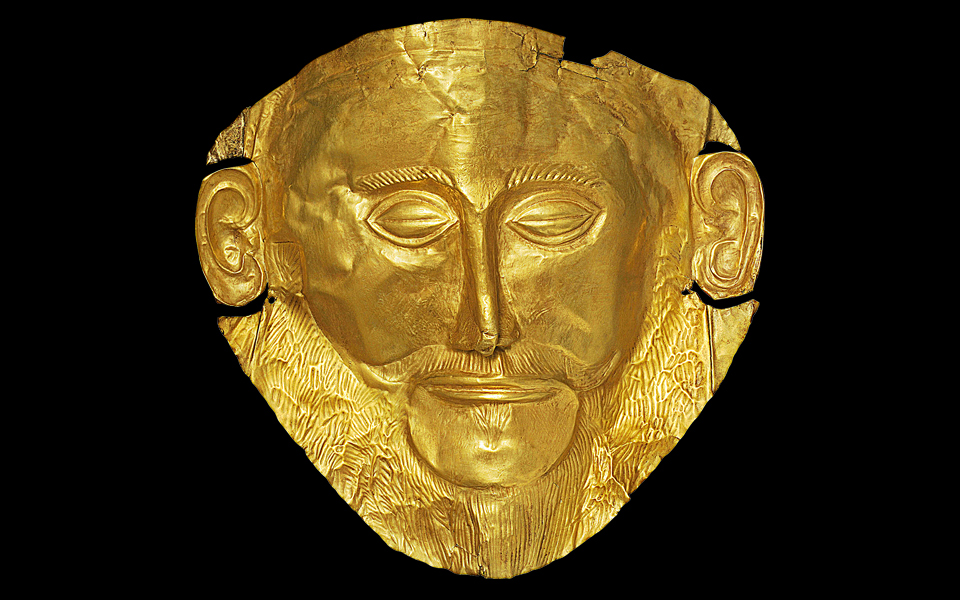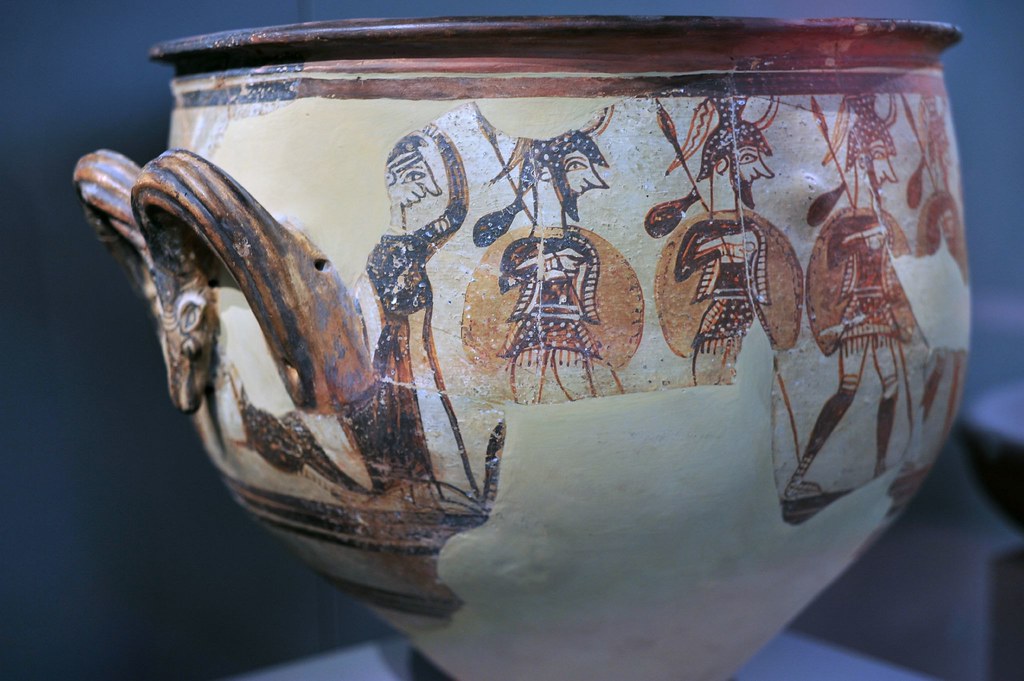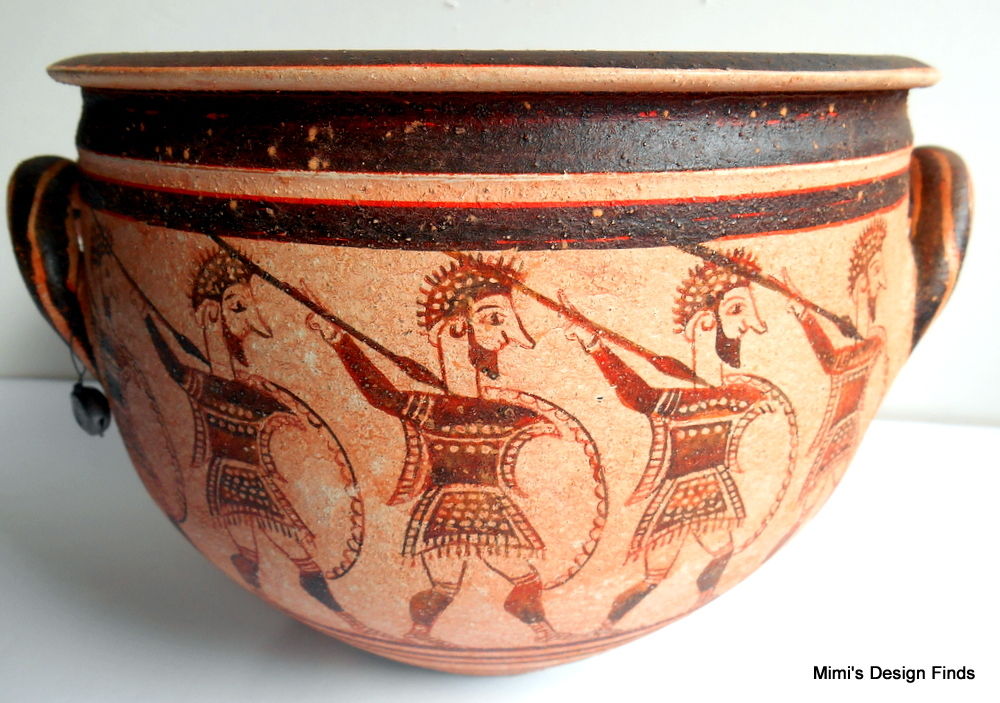
Greek Pottery Minoan Pottery Mycenaean krater "The Vase of the Warriors"
Figure \(\PageIndex{12}\): Warrior Vase, large krater with armored men departing for battle, Mycenae acropolis, 12th century BCE. Full armor includes helmet, cuirass, greaves, shield, spear. Carrying supplies hanging from spears. Mycenaean Pictorial Style, from the "House of the Warrior Krater." (Photo: Sharon Mollerus, CC BY 2.0)

A Sense of Place WALKING THROUGH ANCIENT MYCENAE The Muddy Archaeologist's Blog
The Warrior Vase from Mycenae . w H § o Pi h W e< n > pi O KH Pi a < £ w s H . SATHER CLASSICAL LECTURES Volume Thirty-one HISTORY and the HOMERIC ILIAD . HISTORY AND THE HOMERIC ILIAD BY DENYS L. PAGE UNIVERSITY OF CALIFORNIA PRESS BERKELEY AND LOS ANGELES 1959 .

Mycenae & Tiryns The Mighty Citadels Greece Is
A survey of Mycenaean warfare Evidence from the Late Bronze Age Aegean There are a lot of bad takes with respect to what warfare was like in the Late Bronze Age Aegean. In this article, Josho Brouwers offers a comprehensive overview of Mycenaean warfare. Josho Brouwers 8 June 2021 Ava Babili

Mycenae & Tiryns The Mighty Citadels Greece Is
Large Mycenaean krater depicting men in full armour (helmet, cuirass, greaves, shield and spear) as they depart for war, a sack of supplies hanging from their spears. To the side a woman raises her hand in a farewell gesture. From the "House of the Warrior Vase" at Mycenae Acropolis. 12th century BCE. (National Archaeological Museum of Athens)

Warrior Vase Alchetron, The Free Social Encyclopedia
For him agility and mobility The 'Warrior' vase found at Mycenae. counted for much, and he sacrificed the security of a full-body shield in order to be fast on his feet and to have free use of his offensive arm." [33] Each warrior also wears torso armor (cuirass) and leg greaves.

Warrior Vase Mycenae War Motifs Mycenaean Boars Tusk Helmets Like Images Frompo
Warrior Vase from Mycenae LH IIIB/C Height 16 inches (National Archaeological Museum, Athens) A Pictorial Style krater, unique during this period for its narrative decoration of armed warriors marching in single file to the right. A woman on the far left appears to be waving goodbye. Stemmed Cup from Mycenae LH IIIA/B Height 6 inches

Mycenaean Warrior Krater Discovered at Mycenae outside Gra… Flickr
Mycenaean warriors depicted on a krater from Mycenae known as the 'House of the Warrior Vase', 12th century BCE. (National Archaeological Museum, Athens) Remove Ads Advertisement About the Author Mark Cartwright Mark is a full-time author, researcher, historian, and editor.

Greek MYCENAE Warriors Vase Krater Museum Quality Replica 6.5" H Wire Tag EUC Antique Price
The Mycenaean Warrior Vase, found by Heinrich Schliemann on the acropolis of Mycenae, is one of the prominent treasures of the National Archaeological Museum, Athens. The Warrior Vase, dated to the 12th century BCE, is probably the best-known piece of Late Helladic pottery. It is a krater, a mixing bowl used for the dilution of wine with water, a custom which the ancient Greeks believed to be.

301 Moved Permanently
Mycenaean wares typically display stylized representations of marine and plant life and show a fondness for minimalistic linear designs, a trend which would go on to influence the early pottery of Archaic and Classical Greece from the 9th century BCE. Mycenaean Stemmed Cup Mary Harrsch (Photographed at the Getty Villa, Malibu) (CC BY-NC-SA)

Art 260 Lecture 11
The Warrior Vase from Mycenae. Photo by Sharon Mollerus, Creative Commons License, CC BY 2.0. There was also a pictorial tradition in postpalatial Mycenaean pottery. Ivory working, production of inlaid furniture, and the manufacture of precious containers all ceased or very significantly diminished, though some items circulated as heirlooms. 22.

DESTROYERS OF THE MINOANS Mycenaean warriors depicted on a krater from Mycenae known as the
The Warriors Vase depicts a static scene of a woman bidding farewell to armed warriors. The vase, from Mycenae, is decorated with minimal color and a uniform design. This vase represents the culture 's dependence on warfare.. The Warrior Vase (c. 12oo BCE) is a bell krater that depicts a woman bidding farewell to a group of warriors. The.

Greek Art & Archaeology Mycenaean Pottery
The Mycenaean Warrior Vase, found by Heinrich Schliemann on the acropolis of Mycenae, is one of the prominent treasures of the National Archaeological Museum, Athens. [1] The Warrior Vase, dated to the 12th century BCE, is probably the best-known piece of Late Helladic pottery. [2]

Mainland Helladic Period
Download scientific diagram | The Warrior Vase from Mycenae, LH IIIC. Height 42.7 cm (Athens National Museum). from publication: Sedentary Versus Nomadic Life-Styles: The 'Middle Helladic People.

Detail of the Warrior Vase, discovered in Mycenae. At the National... News Photo Getty Images
The Mycenaean Warrior Vase, found by Heinrich Schliemann on the acropolis of Mycenae, is one of the prominent treasures of the National Archaeological Museum, Athens. The Warrior Vase, dated to the 12th century BCE, is probably the best-known piece of Late Helladic pottery. It is a krater, a mixing bowl used for mixing water and wine, for the ancient Greeks never drank wine unwatered. The.

Greek Art & Archaeology Mycenaean Pottery
by Dr. Senta German Looking past the "Palace" to the sea, Mycenae, Greece, c. 1600-1100 B.C.E. The ancient citadel (fortified city) at Mycenae is located on top of an isolated hill and provides truly spectacular views of the surrounding area, making it an ideal location for a defensive stronghold.

'Warrior Vase,' detail from Mycenae 12th century BCE Natio… Flickr
Warrior vase also known as 'House of the Warrior Krater' found in the Mycenaean Acropolis 12th century BCE. This vase was found in the Mycenaean period around the acropolis and was known as the 'Warrior Krater'. Kraters were large vessels that were used to mix and dilute wine with water.